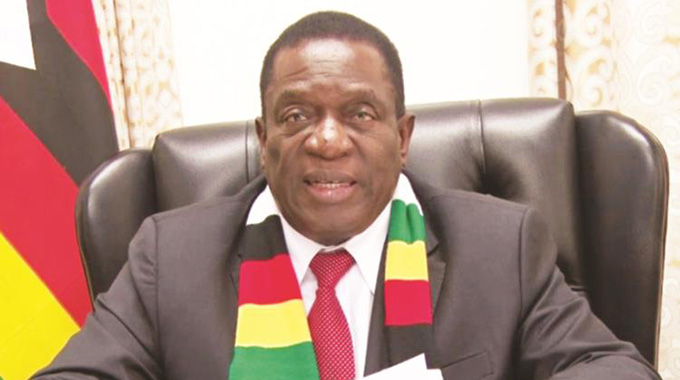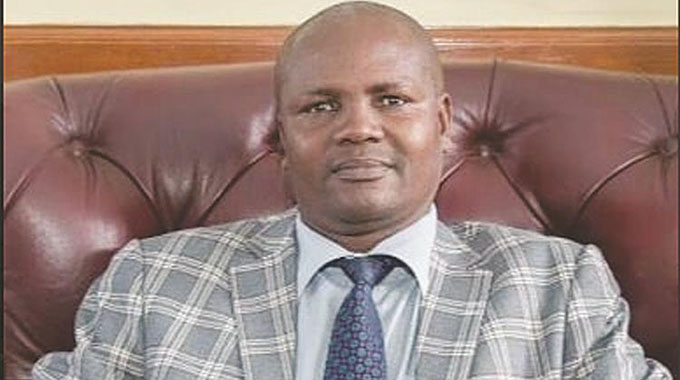Editorial Comment – AfCFTA: An opportunity for Zimbabwe

The African Continental Free Trade Area (AfCFTA) now being built, with the 13th extraordinary session of the Heads of State and Government over the weekend, promises opportunities for Zimbabwean producers and industrialists, but will present challenges for those who refuse to recognise the new world.
The ultimate goal of AfCFTA is to create a single free trade area covering the whole continent and with that huge single market allowing African businesses, industrialists, service providers to expand and grow.
And that is the opportunity for Zimbabwean business. As the market continues to open anyone who can produce high-quality products at a good price will be able to increase sales, find new customers and expand.
The challenge is the other side. Protection for home industries will be decreasing as trade barriers fall, so producers of over-priced and inferior quality products are going to come very short. Someone else on the continent will have a better product at a cheaper price and will take the markets.
A lot of work already done by the Second Republic, as President Mnangagwa stressed to the extraordinary assembly on Saturday, has prepared Zimbabwe and its private sector for the coming AfCFTA.
A correctly-priced local currency with stable exchange rates means our manufacturers can be competitive. The legal changes already in place and likely to be finalised in the present Parliamentary session means that Zimbabwean businesses can open, expand and market their goods without being strangled by red tape.
Some of our businesses have already learned to be competitive, having eaten into imports when these were flooding in, by producing the right product at the right price.
Others, who never really managed to convert from the closed economy to the open economy and told their customers “take it or leave it”, found that their customers would rather “leave it”.
They have either reformed, or closed, or been taken over by someone who knows that the combination of quality and price will beat down a lot of doors.
But as we finish off the ground clearance in our Transitional Stabilisation Programme and move into our National Development Strategy we need to keep right in front of our minds the fact that we will be developing into a growing free trade continent.
There is nothing wrong in starting off with looking at local markets and local needs, but it does mean from the word go our industrialists and others need to be ensuring that they set and maintain standards of high quality, that pricing has to be built on volume rather than profiteering and that they will be able to compete against other African products entering the Zimbabwean markets and be able to get out there and export across the continent.
Free trade is not a zero sum game, where a fixed market is divided into winners and losers. Free trade increases wealth, so making the markets bigger, and AfCFTA goes a step further by seeing African businesses expanding to satisfy markets now dominated by producers outside the continent.
So in both respects Zimbabwean producers have a growing market to expand into. The one potential problem of non-tariff barriers was addressed by President Mnangagwa, who made it clear that open trade and free trade requires fair trade.
This is fairly automatic when rules are being developed for a free trade area; things like subsidies, local content rules and the like need to be very carefully defined and enforced.
Obviously there will be areas where Zimbabwe might not have a competitive advantage, as well as areas where Zimbabwe can do better than most.
Our basic advantages are a lot of natural resources, a fairly well educated population and, by African standards, a reasonable industrial base, although far too much of our primary industry was wiped out by the poor economic policies of the First Republic.
The Second Republic’s economic and social-economic policies are in the process of accentuating those advantages. Fixing agriculture and getting production of both food and cash crops moving upscale means the resources for agro-industries are in place.
Encouraging more investment in mining means not just more production and exports, which are important, but creating the volumes required for a lot more processing locally. Opening industry to just about anyone with a good idea and the determination to succeed widens and deepens our industrial base.
In his 2021 Budget Statement, Minister of Finance and Economic Development Prof Mthuli Ncube noted some areas where Zimbabwean industry could move forward from our resource base.
He was puzzled, for example, why we export most of tobacco as leaf, rather than as cigarettes. Well there are barriers, but as free trade grows then those barriers fall and that particular example, of converting Zimbabwean raw materials into export goods, seems the way our industry needs to grow.
On the manpower side, after a couple of decades of sitting on our laurels having opened education to all, the Second Republic is now delving into the quality and usefulness of that education, wanting to see a lot more emphasis on technical and entrepreneurial education.
That in turn means that we will have more Zimbabweans with the background and ideas to start businesses, and a lot more Zimbabweans who can provide the skilled workforces growing businesses must have.
So the building blocks for the future Zimbabwean economy are in place already. Most of what we now plan to build will be vital for us to contribute our share to Africa’s growing wealth, since our basic industrial strategy is to increase the supply of raw materials we grow and mine, and then convert those raw materials to products that others want to buy.
For a resource-rich country this is the obvious way forward, where the built-in competitive advantages can be maximised.
But we should not forget other areas. India, for example, is now a software giant in global markets having put together a large internal market, the graduates of a lot of technical schools, some astute entrepreneurs and even the fact that just about everyone’s second or third language is English. We should not limit ourselves.
At one stage AfCFTA might have been a threat, since we had fallen behind so many on the continent. We have now caught up a lot, even in just over two years of the Second Republic, and it is now an opportunity. We are on the right path can grow with our continent, playing our part.











Comments